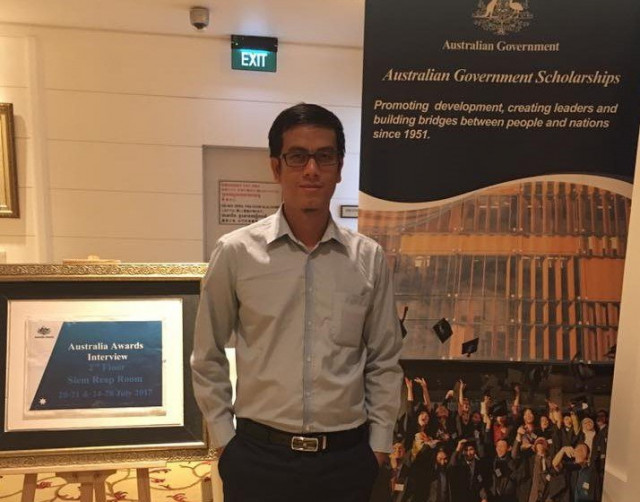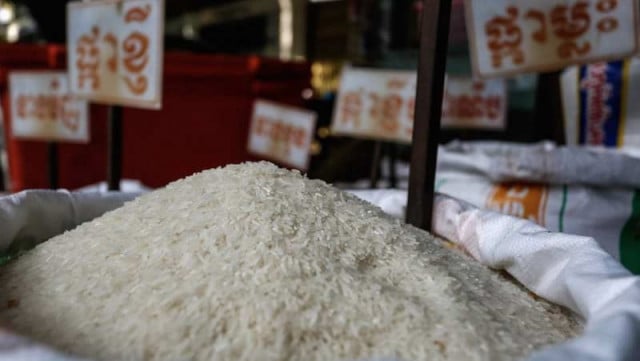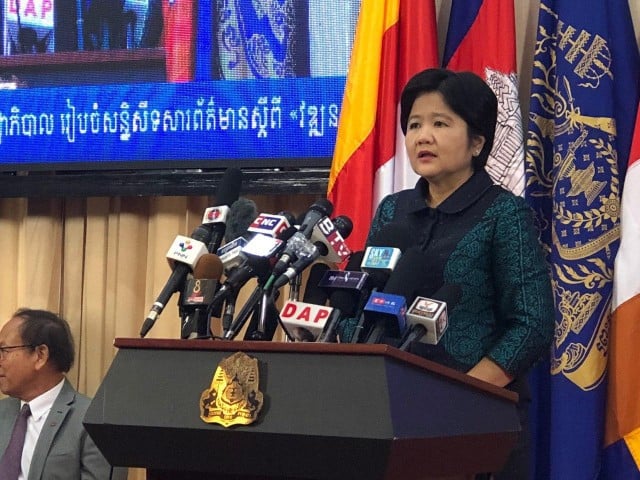Research activity in Cambodia has expanded but more needs to be done, says a scholar

- Im Mengseang
- July 21, 2019 9:52 AM
Thmey Thmey journalist Im Mengseang interviews Heng Kimkong on Cambodia’s research culture. Kimkong is a doctoral candidate at the School of Education at the University of Queensland. He earned a Master’s degree in Teaching English to Speakers of Other Languages (TESOL) from the Royal University of Phnom Penh and graduated with another Master’s degree in TESOL from the University of Canberra.
IM MENGSEANG: How do you view research culture in Cambodia?
HENG KIMKONG: There's a growing upward trajectory in research development in our country. Even though progress is slow, it is progress. It's a natural progress — because even if you don’t try to promote it, research will still increase because of the social, economic and educational needs or demands of people in society. The new generation in Cambodia will understand the value and engage with research. Because of technology, globalization and internationalization of education, we know we need to research, read and keep ourselves updated.
Overall, there's an increase in research activities. But I'm not satisfied. We should do more to promote progress and make sure research is more valued by people in society, government institutions — everyone.
IM MENGSEANG: Why should Cambodia prioritize research?
HENG KIMKONG: Everyone knows the value and significance of research. In developed countries, they have funds to support research. When they do research, they can find something new and solve social problems. For us, we take results or findings from other contexts and use them in our context. But this can sometimes not be applied because of different contexts. We need to do our own research to find solutions that match.
Research is very important to address social issues, widen our understanding of the world, broaden our knowledge and make discoveries and inventions. We know we can use knowledge for society to make changes to advance. Without research, we lag behind other countries. For example in Vietnam now, they can produce smartphones and automobiles. But we can’t produce anything because we lack research capacity. We're consumers not producers, so this constrains our economy. If we can produce, we can sell and make a profit. If we can’t produce through research, we can only buy. So we're like a rich country that goes and buys products —it's not good at all.
IM MENGSEANG: Who should be responsible for these problems?
HENG KIMKONG: The key stakeholder here should be the government, especially the Ministry of Education and the Ministry of Economy and Finance — they are the policymakers, leaders and drivers that can promote research. For example, they should allocate public funds for research capacity. They probably need to improve their policies. Actually, they have policies but implementation is limited. We need to work more on this. When it comes to implementation, we have to think about budgets. The Finance Ministry has to understand the value of research, pay more attention to this and allocate more budgets to the Ministry of Education.
At the institutional level, leaders of universities have an important role to play to promote research, support lecturers conducting research and add value to those who get involved in research. At the moment, what I’m seeing is that those engaged in research use their own budgets to support projects. Some universities manage to support research projects but still don’t have a clear policy.
IM MENGSEANG: Does lack of reading affect research culture in Cambodia?
HENG KIMKONG: Research involves reading and finding out what people have done and trying to do what people have not done. It involves reading, critical thinking and some writing as well. The problem we face now is the lack of a reading culture. It is hard to cultivate immediately and it will take time to make improvements. The Minister of Education has been doing lots of stuff to promote reading including celebrating the National Day for Reading and building more libraries in all schools across the country.















